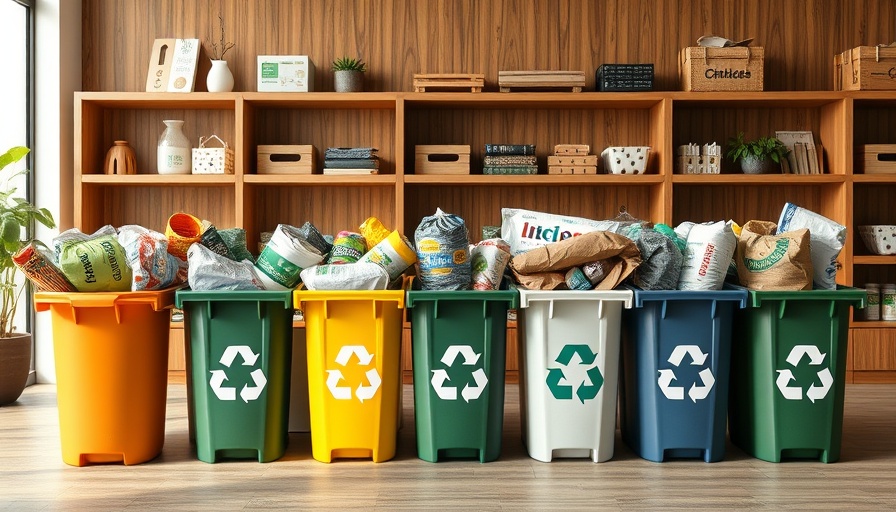
The Importance of Recycling Symbols in Metro Vancouver
In Metro Vancouver, where space is a premium and environmental consciousness runs high, understanding recycling symbols can significantly impact how residents manage waste in their homes and gardens. The region’s commitment to sustainability is not merely about rules; it’s about a way of life that encourages behaviors promoting environmental health.
Decoding Recycling Symbols: Practical Insights
The recycling symbols seen on various packaging can often confuse consumers. There are five main types of recycling symbols—1 (PETE), 2 (HDPE), 3 (PVC), 4 (LDPE), 5 (PP), and 6 (PS). Each symbol represents different types of plastic, informing residents about what can and cannot be recycled. For instance, materials labeled with 1 and 2 are widely accepted in Metro Vancouver's curbside collection programs, while others, like 3 and 6, often end up in landfills. Understanding these nuances not only reduces waste but also simplifies the recycling process, especially for residents with limited outdoor space who may feel overwhelmed with garden projects.
Creating a Practical Recycling Space in Limited Areas
For residents dwelling in crowded spaces, maximizing efficiency while encouraging proper recycling habits is crucial. Designating areas in small backyards or balconies specifically for recycling can lead to better waste management. Ideas include using vertical storage solutions or creating simple sorting stations that help streamline the recycling process based on the various plastics marked with their respective symbols.
Future Trends in Recycling and Waste Management
The future of recycling technologies promises new methods to better process and utilize materials that were previously seen as non-recyclable. Emerging technologies, including bioengineering and AI-enabled sorting systems, aim to revolutionize how waste is managed. Residents of Metro Vancouver should remain engaged and educated about these innovations, as they present opportunities for more comprehensive recycling practices and reduced overall waste.
Engaging the Community in Sustainable Practices
Building a community-centric approach to recycling can foster accountability and increase participation. Initiatives that involve local workshops on understanding recycling symbols, as well as cooperative recycling challenges, can both educate and motivate residents to adopt better waste management practices.
Conclusion: Embrace the Change
Navigating recycling symbols is more than a chore; it's an integral part of Metro Vancouver’s commitment to sustainability. Understanding these symbols not only aids individual households but also harmonizes community efforts in creating a cleaner, greener environment. To effectively contribute, residents should not only learn about their local recycling framework but also actively participate in community education and initiatives.
 Add Row
Add Row  Add
Add 




Write A Comment